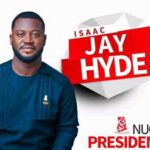This government has set out to get the Constitution amended. The amendment is to change the country’s local government system.
However, there has been major confusion in the minds of the people as to what exactly the amendment will result in. This short article will do two things: (1) point out, precisely, what the result of the amendment will be, and (2) ask for a NO vote from you at the referendum.
Background
Currently, our Metropolitan, Municipal and District Chief Executives (MMDCEs) are appointed by the President (subject to the approval of the MMDAs). Currently, too, our local government system operates on non-partisan basis. This means that political parties are not allowed to participate in local government. The amendments are intended to change these two features. But why the two features? And, do we need the two features changed?
The Differences
The first step to understanding the amendment is to separate the question of MMDCE election from the question of political party participation in local government. These are the main reasons for separating the two issues:
Electing MMDCE is a natural consequence of the current political philosophy of a ‘people-owned’ local government, while a partisan local government system is a seismic change from that ‘people-owned’ to a ‘party-owned’ local government.
Because of reason (1), the framers of the Constitution decided, for good reasons, to make the provision on the appointment of MMDCEs – Article 243(1) – a non-entrenched provision, while making the provision that bars parties from taking part in local government – Article 55(3) – an entrenched one; and Because of reason (2), the question whether MMDCEs should be elected is exclusively left for MPs, a small group of Ghanaians, to decide in Parliament, while the question on the major change – whether local government should be partisan (like the central government situation) – is for the people to decide at a referendum.
Therefore, to all intents and purposes, the two issues are substantially different and thereby, ordinarily, ought to be treated separately.
Question
Why, then, is the government and some think tanks forcing the two questions together (instead of one) and, much so, down our throats, even amidst clear vehement protests? Now, please, read the following section carefully:
Electing MMDCEs is a serious reduction in the President’s power. Ghanaians have always raised serious concerns over the size and weight of the President’s power. This explains why the idea – of electing MMDCEs – is extremely popular with the people. But reduction of the President’s power is also the very reason the government, ordinarily, won’t like that MMDCEs are elected. Mr Gabby Asare Otchere Darko, an NPP political strategist, would put the question this way:
“Why should a party and a President who have been voted into office and with a clear constitutional mandate to appoint all mayors give that up for the electorate to decide?”
But, even before him, Mr John Boadu, the General Secretary of the NPP, a few months earlier, had beautifully laid down the reason his party is ordinarily against the election of MMDCEs. He is reported in the Graphic as follows:
“According to him, the disapproval of the election of MMDCEs by the members [of the NPP] was because they believe the party will lose out on rewarding its hardworking members who have mobilised support for the party at the local level if those positions become elective rather than appointive.”
So, clearly, the political class (or, at least, the NPP’s political class) has no motivation for allowing the people to elect the MMDCEs. But, they have to fulfil or, to put it more precisely, be seen to be fulfilling a campaign promise, so they would put the amendment forward this time, but not in the form that you think it should take.
Answer
To make up for the reduction of the President’s power, therefore, the government had to tie the two questions together. That way, whoever gets elected also automatically, because of the party connection, falls back under the President’s power. The sum effect of putting the two amendments together is a claw-back situation where the government pretends to give up power to the people (by “allowing” the election of MMDCEs) but, then, quickly takes the power back (because the persons elected become a part of the President’s power-pack). It is like the political class telling you in the face that – we’ll allow you to elect your MMDCE, but you’ll elect them only from among us, the political class.
Now, if the reason for the people yearning to elect their MMDCEs is to reduce the President’s influence, at least, at the local government level and make local government a people-owned system (rather than a party-owned system), then, voting YES at the referendum will not only defeat the whole purpose (of electing MMDCEs), it also will make absolutely nonsense of the purpose forever and ever.
The Deception
It is quite clear at this point that the reason for putting the amendment for electing MMDCEs forward this time is also the same reason the government is gluing it to the proposal for a partisan local government – to fully and finally impose the central government on the local government. Again, it is quite clear, I believe, why the government is so desperate, even to the extent of deceiving the public that a YES vote at the referendum is what will allow them to vote for MMDCEs (when, in fact, the referendum has nothing to do with the election of MMDCEs).
So, all these spurious arguments from some think tanks about deepening accountability to the people, deepening democracy, why play the ostrich, blah blah blah, are either made out of common ignorance of the dynamics or are carefully designed to pass wool over your eyes. For example, the Constitution Review Commission had done this analysis and had long concluded on the accountability argument that:
“Where local elections are held on partisan bases, nomination rules determined and deployed by national parties can serve as impediments to accountability. It also weakens local government systems.”
Accordingly, while it is true that electing MMDCEs will make them accountable to the people (rather than to the political class), it is never true that electing them on party lines will give the same result. Indeed, electing them on political party lines will give a result which is worse than we currently have – MMDCEs (like MPs) would be even more loyal to their parties which are headquartered far away in Accra than to even the local assembly persons that they currently pay discounted allegiance to.
For this and other compelling reasons, I humbly urge you to vote NO at the referendum.







